What urban renaissance really means
Looking out from the front doors of Kirkaldy’s Testing and Experimenting Works, URBED’s base in the 1980s, to the new Tate Modern extension and Richard Rogers’ stupendous apartment blocks, it seemed time to reflect on what urban regeneration is all about. When we moved there from Covent Garden we counted a million square feet of empty industrial floor space in a square mile. The street itself was desolate, walled off from the river by ugly post war office blocks, and with nowhere to eat or shop. Surrounded by friends and former staff at our 40th Birthday Party in a place we had saved, a number of themes struck me from past work, starting with David Kirkaldy’s motto, which he commissioned over the front door and which has been carved into the recently paved side street behind the building.
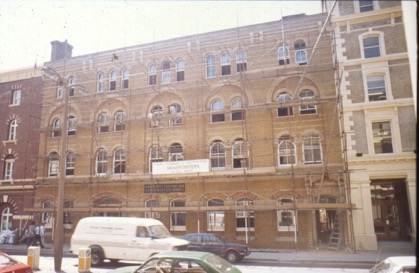
Kirkaldy Testing Works – 1970s
Facts not opinions
URBED’s work is all about learning from experience and then applying the lessons in demonstration projects. Like Kirkaldy, we have tested received wisdom, most recently through research into the parking requirements in new settlements. Through study tours with our TEN Group aimed at ‘Learning from European cities’ , which we ran for ten years, we showed what also could be done to bring places back to life. Some of the findings are set out in Good Cities Better Lives, which I helped Sir Peter Hall produce, and others are freely available on our web site www.urbed.coop. While others have relied on arid statistics we preferred to rely on ‘looking and learning’, and on understanding the factors that cause places (and people’s lives) to change for the better.
Reusing old buildings
Our starting point was making better use of resources that were going to waste. So we researched the potential uses for old buildings, and our first consultancy work was for the Department of the Environment, represented by our first client John Zetter. Chris Cadell used a series of well-presented case studies to draw out the lessons, and his report became the model for others in their publications on ‘good practice’. Alas URBED’s experience has persistently been to raise demand in the areas we have colonised only to be squeezed out when others have taken over the buildings. In this case we took over nearby Tress House in Stamford Street, which is now appropriately the Mad Hatter Hotel, opposite the side of one of London’s largest new housing towers.
Promoting enterprise
A major part of our early work was not only to make workspace readily available on ‘easy in easy out’ terms, but also to provide training to budding entrepreneurs. We pioneered the first ever courses on ‘starting your own business’, which grew into a large part of our work, including handbooks on Entrepreneurial Management Skills and on Managing Urban Change. We worked with a range of entrepreneurs, from people leaving companies like IBM and Rank Xerox to those starting social enterprises. Unfortunately, our major client, the South Thames Training and Enterprise Council, went bankrupt, and we lost a large part of our own business, forcing us back to research and consultancy. However we extended from London into both Bradford and Birmingham, setting up ‘action teams’, and were fortunate to take on David Rudlin in 1990 to run Little Germany Action. He now runs URBED’s highly successful masterplanning and urban design work from the office in Manchester.
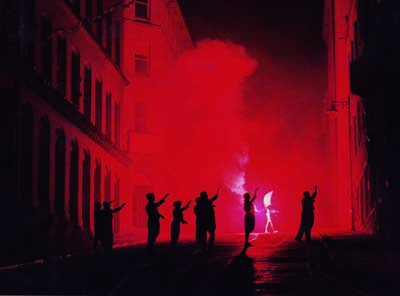
Bradford Little Germany – Festival Psychopolis
Revitalising town centres
Having seen how Britain had lost its industrial base in a few decades, we spotted the challenges facing town centres of all kinds, and did pioneering work into what could be done to save them, such as diversifying their cultural offer. This led on to a valuable commission for the Department of the Environment, the highly illustrated good practice guide Vital and Viable Town Centres to accompany the government’s policy statement PPG6 in 1986. By looking separately at the four As (attractions, access, amenity and action), we generated a whole industry of town centre health checks, and Town Centre Management. URBED ended up leading consultancy teams in all parts of England and Wales, and even some towns in Europe, as well as bidding for many more that we failed to win. Our report on New Life for Smaller Towns provided check lists and short case studies for what market towns could do. We promoted the North American idea of Business Improvement Districts, and helped draw up proposals for one of the UK’s first in Bankside, as well as the BID pilot programme. Sarah Jarvis, who kindly made Kirkaldy’s available for our party, is now working with Better Bankside on a Neighbourhood Plan for the area.
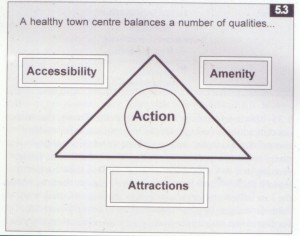
An extract from Vital and Viable Town Centres
Providing space to live
Having previously left housing to other specialists, except for our work in supporting Homes for Change in Hulme (now celebrating their 20th anniversary) David Rudlin and I produced Building the 21st Century Home. This argued for building something different from 19th century terraces, and 20th century semis, and in a report for the Urban Task Force we showed how people could be attracted back to live in cities. Martin Crookston, one of the members of the Task Force, has been working with us on rethinking the relationships between town and country, as a means of allowing the CPRE to move forward. For we showed fairly convincingly that only around 60% of our housing needs could be accommodated on brown field sites without losing valuable employment. Work with the Housing Forum and others crystallised in our winning the valuable 2014 Wolfson Economics Prize for showing how to build new garden cities that are visionary, viable and popular. URBED’s Manchester office are putting the design principles into practice in places as different as Oxford, Nottingham and Sunderland, working for leading developers as well as local authorities, our traditional clients.
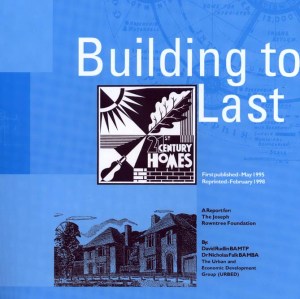
Building the 21st Century Home
Planning for posterity not austerity
The South Bank is now one of Britain’s urban regeneration success stories, and the pioneering role played by small enterprises such as ours is soon forgotten. Having worked for ten years on building agreement on More London by Tower Bridge, or more recently on Barton Park in Oxford for Grosvenor and Oxford City Council, I believe sustainable regeneration takes a generation. URBED has only been able to survive the ups and downs of the consultancy market by staying small, flexible and innovative. We continue to employ specialists in sustainability, as well as collaborating with leading thinkers, such as Herbie Girardet, who helped us on the preparatory work for the London Sustainability Exchange, or Charles Landry, who contributed most recently to one of URBED 40 events. Our close association with the Academy of Urbanism (AoU) has culminated in David Rudlin becoming the next Chair, and an example of recent collaboration with Oxford Civic Society and the AoU has been our report on Oxford Central West, which shows how to make the most of the 200 acre area around the railway station.
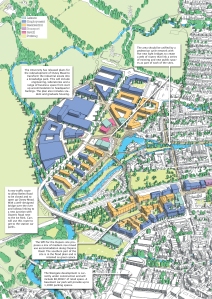
Outputs from our Oxford workshops.
To give proper attention to disseminating the lessons from our work, for example to growing cities in Southern India, we are setting up The URBED Trust. As the first chair, I am keen to work with other partners to use planning as a creative process for building an environment that our successors will value, rather than its current limited role in regulating the private sector. This means thinking ahead, for example to a world where parking is carefully regulated, and where walking, cycling and rapid transit are the preferred way of getting around. When we produced the first ever toolkit for making suburbs more sustainable for the Mayor of London, we designed it so it could be shared through the Internet. Now we are starting to think in terms of short films that can be made available on YouTube, and other ways of getting through to those who want to change direction, such as these short blogs.
I hope you will let us have your views on the changing priorities and want to work with us in the years ahead, and that you will find some of the other postcards from the future are helpful in providing inspiration.
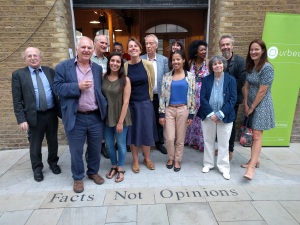
URBED past and present
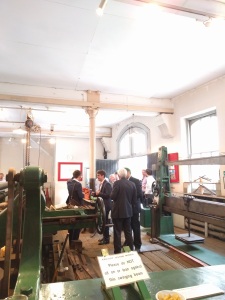
Inside the Testing Works
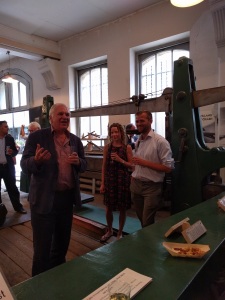
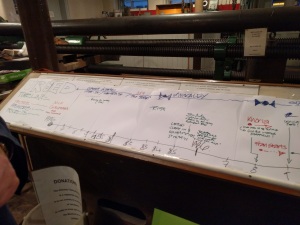
Plotting the URBED timeline
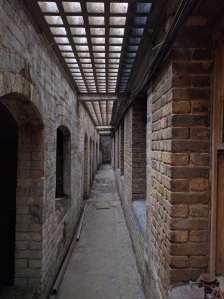
Kirkaldy Testing Works

